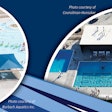Recreational-use statutes are expanding to include public fields, playgrounds and pools

In an effort to encourage private landowners to open up their lands for public use and recreation, every state has enacted something called a recreational-use statute. The traditional recreational-use statute has some common characteristics:
• The protection is available only to private landowners.
• The landowner cannot charge a fee for admission onto the property.
• The land must be unimproved - that is, undeveloped rural land retained in its natural condition.
• Under the statute, the only obligation the landowner has to those entering the property is to provide a warning of any known concealed (that is, not obviously apparent) dangers. The owner has no duty to warn of open and obvious hazards, nor does he have a duty to warn of conditions that are unknown to him.
• In exchange for opening their lands to the public, landowners enjoy limited liability or immunity from personal-injury lawsuits that may result from the public coming onto the land.
Since recreational-use statutes are created by each state, they sometimes vary in their particulars. For example, some states have broadened the statute to include not just private land but public lands. Others now allow property owners to collect a small admission fee, or have modified the rule that the land must be unimproved. In a number of states, recreational-use statutes now cover facilities such as athletic fields, playgrounds and swimming pools.
A case from one of these states, Howard v. East Texas Baptist University [2003 Tex. App. LEXIS 10168], demonstrates some of the more recent nuances of these statutes. East Texas Baptist University is a private university that, for a nominal fee, allows the public to use its outdoor swimming pool. While using the pool, Michelle Howard injured her back when the pool's diving board "double bounced." Howard claimed that because the diving board's fulcrum was improperly positioned, she was "propelled upward in an unstable manner," leading her to injure herself while attempting a midair correction. In addition, Howard claimed that "the condition of the board at the time of the accident resulted from an inexcusable lack of normal maintenance and an equally inexcusable lack of concern for safety," and that "the board was not kept safe in a manner consistent with the American National Standard … for public swimming pools." Howard's suit against ETBU charged that the school's gross negligence was the cause of her injuries.
In order to decide the case, the Court of Appeals of Texas held that it must first determine the applicable standard of care ETBU owed Howard. Ordinarily, landowners owe individuals whom they invite onto their property a duty to inspect the premises for hazards, remove or repair dangerous conditions or equipment, and warn of hidden dangers. If this standard were applied, as Howard argued that it should, ETBU would have owed Howard a duty to inspect the diving board and to either remove or repair it. Having failed to do either of these things, Howard argued that ETBU should be liable for her injuries.
ETBU, however, argued that it was covered under the Texas Recreational Use Statute. Thus, the school did not ensure that the premises were safe, owe Howard a greater degree of care than is owed to a trespasser on the premises, or assume responsibility for any injury to any individual caused by any act of the person to whom permission was granted.
In determining whether the statute applied, the court looked at the three tests set out in Section 75.003(c). Under this section, the statute's protection applies only to an owner, lessee or occupant of real property who:
1. Does not charge for entry to the premises.
2. Charges for entry, but whose total charges collected in the previous calendar year for all recreational use of the premises are not more than twice the total amount of ad valorem (real estate) taxes imposed on the premises for the previous calendar year. (The statute was amended for all causes of action accruing on or after Sept. 1, 2003, and now requires that revenues do not exceed more than 20 times ad valorem taxes.)
3. Has liability insurance coverage in effect on acts or omissions described by Section 75.004(a) and in an amount equal to or greater than that provided by that section.
Since ETBU charged for entry (negating the first test) and did not have liability insurance coverage described by Section 75.004(a) (negating the third test), the court concerned itself only with the financial-ratio test.
Properly identifying the premises for which taxes should be considered therefore became critical to the applicability of the statute. For example, if Howard's assertion - that "the premises" meant the swimming pool - were correct, then the recreational-use statute would not apply, since ETBU paid no tax on the swimming pool. However, if ETBU were correct in its assertion that "the premises" meant the recreational use of its entire premises, and not just the swimming pool, the recreational-use statute would apply.
After carefully reviewing the statute's language and legislative history, the court concluded that the meaning of "the premises" encompassed the property open to the public for recreational use, as well as any other real property owned by the party seeking limited liability under the statute. Therefore, since the amount collected for the recreational use of ETBU's property was less than twice the amount of ad valorem taxes imposed, the court held that the recreational-use statute applied and ETBU owed Howard no greater a degree of care than it would give a trespasser.
In support of this conclusion, the court cited the state's Third Court of Appeals' decision in McMillan v. Parker [910 S.W.2d 616, 618 (Tex. App.-Austin 1995, writ denied)]. In that case, the court held that the Legislature intended the statute to operate "as a limited exception to the traditional common-law duties owed by landowners for the specific purpose of creating recreational facilities for the general public." That court "considered the imposition of a lower standard of care for persons receiving the benefit of recreational access an appropriate measure for allocating costs under the statute."
The court did note that the purpose of Section 75.003(c) was to expressly prevent landowners who specialize in commercial recreation from wrongfully taking advantage of the statute. The limited application of the statute to owners who charge a nominal entrance fee (presumably to defray the costs of maintaining the property), rather than to those who engage in commercial recreation to turn a profit, was consistent with the overall purpose of the statute: to create and preserve land that the general public may use for recreational purposes.
In light of this interpretation, the court concluded that Howard's position - that the calculation of ad valorem taxes imposed on ETBU should be limited to the property on which the swimming facility is located - runs contrary to the Legislature's intent to make available to the public for recreational purposes land that would otherwise be inaccessible. If this were the case, property owners like ETBU, knowing they would be subject to a higher standard of care, would have no incentive to open private property to the public.
ETBU, therefore, could only be found liable for Howard's injuries if they were incurred through its willful, wanton or gross negligence (as Howard alleged). Gross negligence, the court held, includes two elements:
1. Viewed objectively from the standpoint of the actor, the act or omission must involve an extreme degree of risk, considering the probability and magnitude of the potential harm to others.
2. The actor must have actual, subjective awareness of the risk involved, but nevertheless proceed in conscious indifference to the rights, safety or welfare of others.
In examining the statements of two ETBU employees who were aware that the diving board's fulcrum shifted periodically - yet never reported a need for repair - the court concluded that it was clear no genuine issue of material fact was raised as to any gross negligence by ETBU. On the contrary, the court found that the shifting of the fulcrum never caused problems that suggested any risk to divers, and that the fulcrum was repositioned once any such shifting was revealed by periodic inspections.
In addition, one of the employees, who for 10 years had worked as a lifeguard at the pool, stated in an affidavit that she "had never received any complaint, or even any suggestion that the diving board was functioning improperly." Nor had she ever "observed any defects or problems with the diving board, either before or after" the date on which Howard allegedly injured herself. Therefore, as a matter of law, the court concluded that the evidence simply did not support Howard's claim that ETBU was grossly negligent. Nor, considering the probability and magnitude of the potential harm to others, did the evidence suggest that ETBU was aware of, or acted with conscious indifference to, any risk involving the rights, safety or welfare of its patrons.
Since the recreational-use statute was found to apply, and since ETBU did not act in a grossly negligent manner, the court ruled that ETBU was not liable for Howard's injuries.
It is important to note that while some states apply the immunity protection only toward private landowners, there is a growing trend among states to broaden the statute's coverage to any property owner, lessees, tenants, occupants or persons controlling the premises. As a result, many public agencies now look to recreational-use statutes as an alternative source of immunity.
It should also be noted that although the Texas Recreational Use Statute allows the landowner to charge admission to the property as long as the revenues are not more than a certain percentage of its taxes, this is different from most states. In order for the immunity to apply in most states, the landowner cannot receive an admission fee or any other revenue in exchange for use of the property.




































